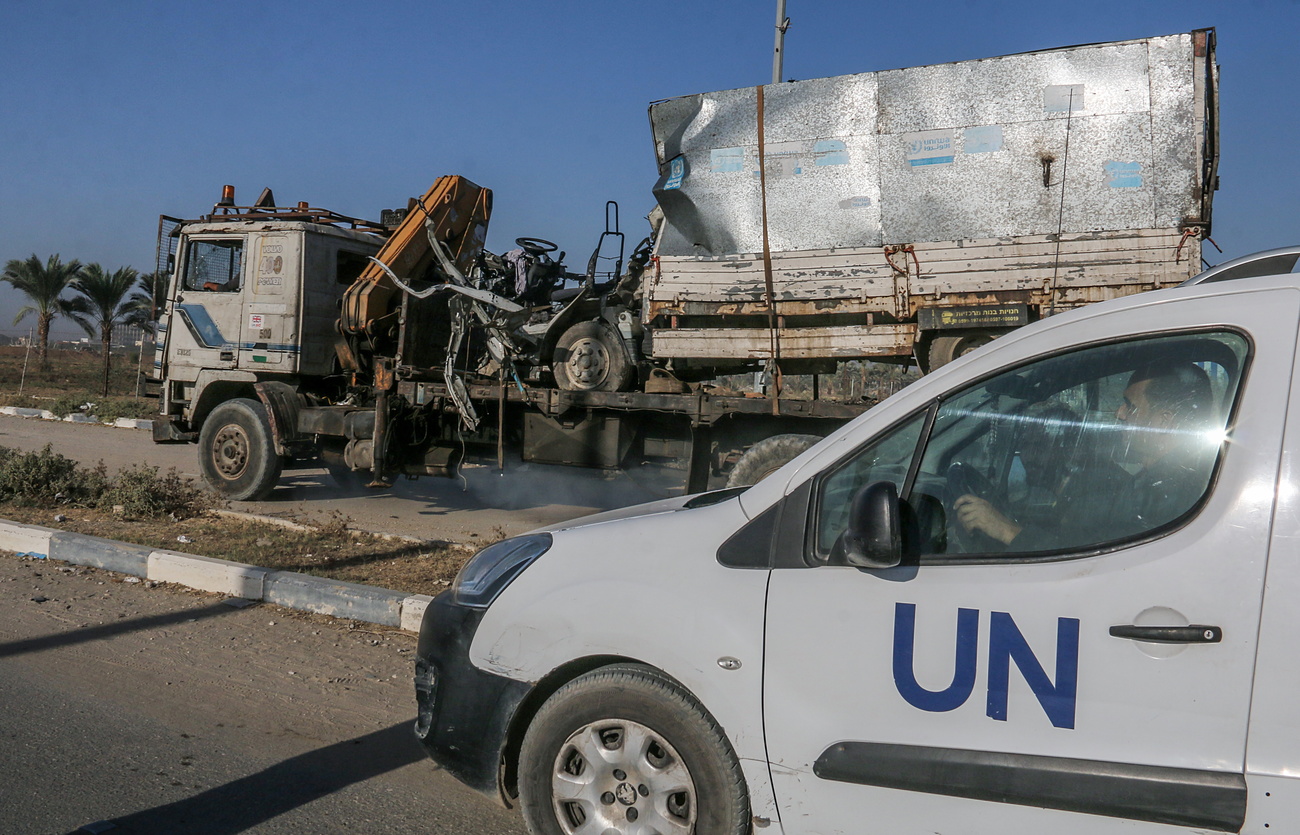
Switzerland concerned about implications of Israel’s laws against UNRWA

The Israeli parliament voted overwhelmingly on Monday in favour of a bill banning the activities of the United Nations agency for Palestinian refugees (UNRWA) in Israel, despite objections from the United States and the UN.
“Switzerland is concerned about the humanitarian, political and legal implications of these decisions,” stated the Swiss foreign ministry on social media platform X.
+Get the most important news from Switzerland in your inbox
The text was approved by the Knesset by 92 votes to 10. Israel has long been highly critical of the UN agency and has accused some UNRWA employees of having taken part in the terrorist attack in southern Israel on October 7, 2023 and of being fighters for Hamas.
For the head of UNRWA, Philippe Lazzarini of Switzerland, the ban “sets a dangerous precedent” and is the latest episode in “an ongoing campaign to discredit” the agency. He felt that the ban would “exacerbate the suffering of the Palestinians”.
If this ban is implemented, “it will be a disaster, particularly because of the impact it is likely to have on humanitarian operations in Gaza and in several parts of the West Bank,” UNRWA spokeswoman Juliette Touma told press agency AFP.
However, Israeli Prime Minister Benyamin Netanyahu said that Israel, which strictly controls the entry of international aid shipments, was “ready” to provide humanitarian aid to the territory.
“We stand ready to work with our international partners to ensure that Israel continues to facilitate humanitarian aid to Gaza in a way that does not threaten Israel’s security,” Netanyahu stated on X.

More
Swiss parliamentarians want to stop UNRWA funding
The UN Security Council, including the United States, warned Israel on October 10 against passing this law, the day after a similar warning from UN Secretary General António Guterres. The text, passed at first reading in July, proposed banning “UNRWA activities on Israeli territory”, including East Jerusalem.
UNRWA, created by the UN General Assembly in 1949, manages health centres and schools in Gaza and the West Bank, and is considered to be the backbone of international aid to Gaza, which is in the throes of a humanitarian disaster.
Some of the biggest donors suspended their contributions earlier this year after Israel accused around twenty of the agency’s 13,000 employees in Gaza of involvement in the terrorist attack on October 7, 2023. Most donors have since resumed their support, with the notable exception of the main donor, the United States.
Adapted from French by DeepL/ac
This news story has been written and carefully fact-checked by an external editorial team. At SWI swissinfo.ch we select the most relevant news for an international audience and use automatic translation tools such as DeepL to translate it into English. Providing you with automatically translated news gives us the time to write more in-depth articles.
If you want to know more about how we work, have a look here, if you want to learn more about how we use technology, click here, and if you have feedback on this news story please write to english@swissinfo.ch.

In compliance with the JTI standards
More: SWI swissinfo.ch certified by the Journalism Trust Initiative

























You can find an overview of ongoing debates with our journalists here . Please join us!
If you want to start a conversation about a topic raised in this article or want to report factual errors, email us at english@swissinfo.ch.